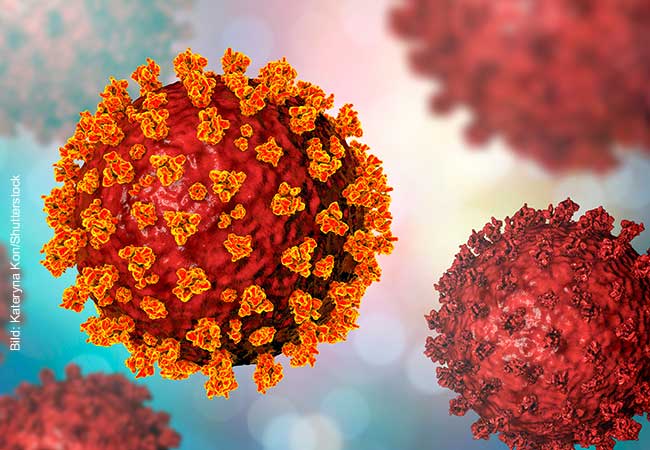A clinical study from Spain recently confirmed laboratory experiments made by researchers of Goethe University Frankfurt and University of Kent who showed that the protease inhibitor aprotinin prevented cells to be infected by SARS-CoV2. The authors of the clinical study report that patients receiving an aprotinin aerosol could be discharged from hospital significantly earlier.
SARS-CoV-2, the coronavirus that causes COVID-19, needs its spike proteins to dock onto proteins (ACE receptors) on the surface of the host cells. Before this docking is possible, parts of the spike protein have to be cleaved by host cell’s enzymes called proteases. In 2020, a scientific team led by Professor Jindrich Cinatl (Goethe University Frankfurt, Germany), Professor Martin Michaelis and Professor Mark Wass (both University of Kent, UK), conducted cell culture experiments and found that aprotinin, a protease inhibitor, could inhibit virus replications by preventing SARS-CoV-2 entry into host cells.
In a more recent study, the research consortium further showed that aprotinin is also effective against the Delta and Omicron variants.
Now, a Spanish research consortium has published the findings of a phase III clinical study investigating the use of an aprotinin aerosol in COVID-19 patients. Among other improvements, aprotinin treatment reduced the length of hospital stays by five days.
Professor Jindrich Cinatl, Goethe University Frankfurt, said: “This shows how scientific collaborations work even without a direct relationship between researchers. I am very glad that our cell culture study inspired this successful clinical trial”.
Professor Martin Michaelis, University of Kent, said: “Our cell culture data looked very convincing. It is exciting that aprotinin has now also been shown to be effective against COVID-19 in patients.”
Spanish study: Francisco Javier Redondo-Calvo et. al.: Aprotinin treatment against SARS-CoV-2: A randomized phase III study to evaluate the safety and efficacy of a pan-protease inhibitor for moderate COVID-19. Eur. J. Clin. Invest. (2022) https://doi.org/10.1111/eci.13776








